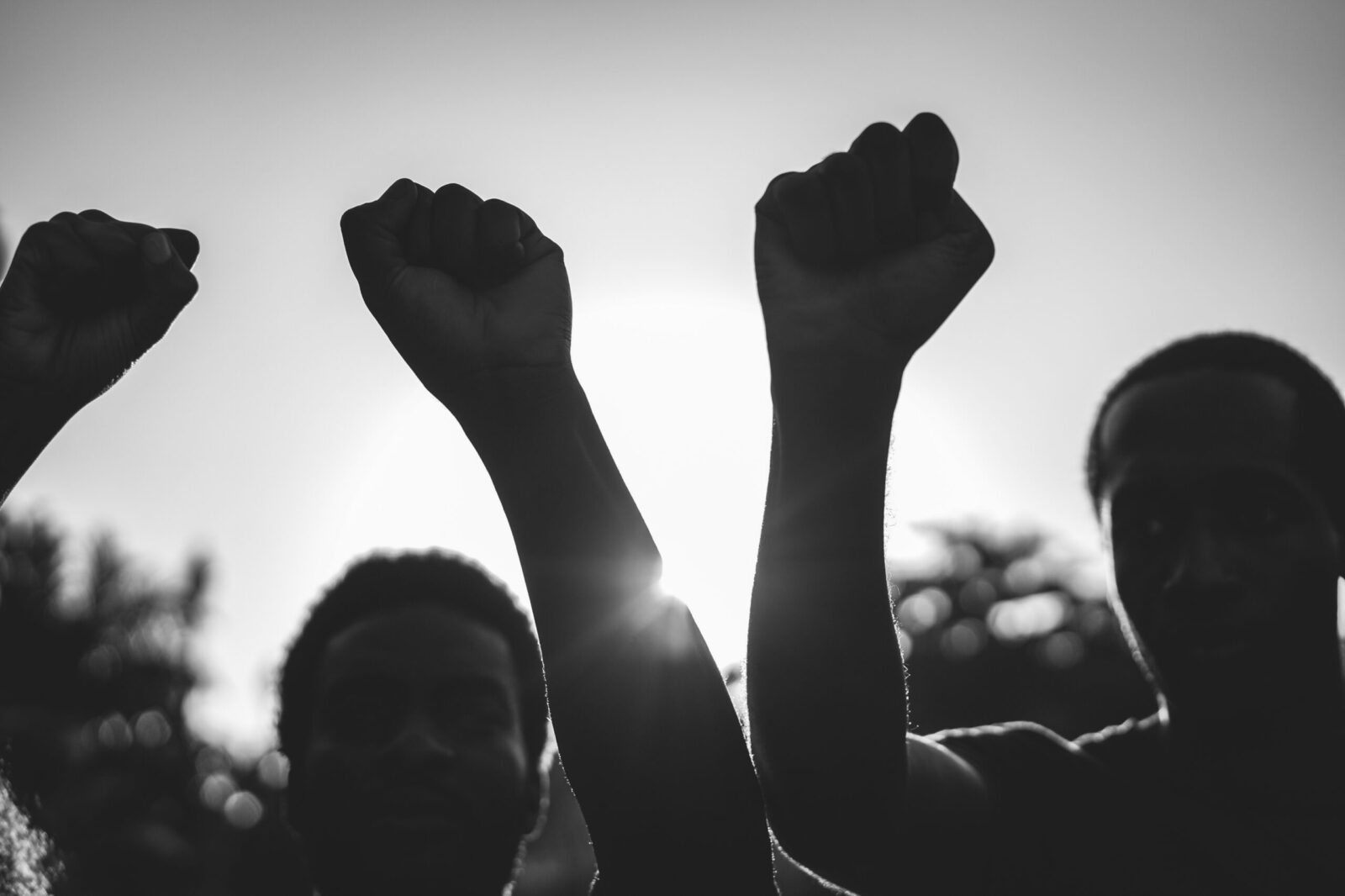February 6, 2023
Reclaiming the Abolition Amendments
Associate Professor of Law at Washington and Lee University

This is the first piece in a month-long blog series that celebrates Black History Month by highlighting the contributions of Black thinkers and leaders to the development of American constitutional thought.
Black people have been excluded from the decision-making process at nearly every significant moment in constitutional law. We were not present for the drafting of the Constitution itself, or for the Thirteenth and Fourteenth Amendments. We did not gain a voice on the Supreme Court until 1967—and by that point, our interests were about to be pushed to the margins by an increasingly right-wing judiciary. Only eleven senators have ever been Black. Our role in constitutional law tends not to be that of the decision maker, but of litigants against the government, employers, or landlords. Very often, we are the ordinary people seeking to vindicate our rights—yet the standards set to adjudicate those rights (including the so-called “originalism” currently dominant on the Supreme Court) frequently center the perspective of an “ordinary person” who looks nothing like us. Centering our understandings of the Constitution—and particularly the Reconstruction amendments, in what they meant to newly enfranchised Black citizens (and their abolitionist white allies in Congress)—would dramatically expand our view of what the Constitution makes possible, and provide powerful tools to support modern movements for liberation.
Even prior to the Civil War, Black thinkers like Frederick Douglass departed from mainstream interpretations to highlight the potential of the Constitution as an abolitionist document, by underlining the fundamental tension between slavery and democracy. During the Civil War, Black Americans played a key role in ensuring the Union’s victory by defying slavery and abandoning plantations to work in service of the Union Army. After the war, Black Americans moved swiftly to make their freedom tangible. As Dorothy Roberts describes it:
"four million formerly enslaved people grabbed the opportunity Emancipation afforded them to create their own economic, social, and political lives independent of white domination. They gathered their family members, established farms and businesses, and ran for public office. Black Americans elected to southern legislatures helped to install egalitarian state constitutions, enact civil rights legislation, and establish public education. . . . Thus, by resisting white domination and acting like citizens, [B]lack people have secured greater freedom apart from official recognition of their rights, thereby changing the Constitution’s meaning to encompass their freedom."
To Black Americans, the Reconstruction Amendments guaranteed their right to establish and protect this new society. A proper understanding of the Reconstruction Amendments’ original public meaning must be consistent with that project.
The Meaning of the Abolition Amendments
For the freedmen and their abolitionist allies, the Thirteenth Amendment’s prohibition of slavery meant not merely to eradicate the prior institution of chattel slavery, but to prevent its return or replacement in all but name. In arguing for the Amendment’s passage, Sen. Henry Wilson—a lifelong abolitionist who had himself spent 10 years in indentured servitude—declared that it would “obliterate the last lingering vestiges of the slave system; its chattelizing, degrading, and bloody codes; its dark, malignant, barbarizing spirit; all it was and is, everything connected with it or pertaining to it.” To this end, the Amendment was designed to encompass not only the conditions of subjugation but also the badges and incidents of slavery. Congress made some of those badges and incidents—including restraints on marriage, family relations, speech, property, education, and status within the legal system clear in their debate, but reserved the power to legislate against additional ones.
The Fourteenth Amendment went farther, clarifying that abolition was to mean equality before the law. The Citizenship Clause embedded the abolitionist concept of birthright citizenship in the Constitution, pushing back against Southern state efforts to restrict Black liberties after slavery’s abolition. The Privileges or Immunities Clause was meant to be the heavy lifter of the Fourteenth Amendment, extending the Bill of Rights (and unenumerated rights) to apply against the states. The Due Process Clause meant to extend the mid-19th Century concept of due process, including substantive due process, to all those within the United States. The Equal Protection Clause was meant to have its emphasis primarily on protection— in addition to guaranteeing that whatever protection state and federal governments offered be applied equally, it also imposed a positive duty on them to protect all people within their borders from private violence and exploitation.
The Fifteenth Amendment did not deal in abolitionist terms of art, and it’s fairly straight-forward. It was meant to clarify that the protections the Constitution guaranteed to all citizens included the franchise. Congress recognized that Black people’s interests could only be meaningfully advanced if they were able to advocate for themselves, and the franchise is a critical component of that.
Finally, it’s worth noting that all of these amendments included powerful enforcement clauses. Congress gave itself the power to legislatively enforce all three, setting a high floor for enforcement of constitutional rights.
The Power of the Abolition Amendments
I’ve said in prior writings that the Abolition Amendments have the power to uphold the entire canon of progressive constitutional decisions, and that’s important. But I want to make it clear just how much more powerful they are than that. The Thirteenth Amendment’s power to redress badges and incidents of slavery could provide the basis for police and prison abolition, and for ending felon disenfranchisement. It supports the strong protection of reproductive rights on a much stronger basis than Roe ever did. It would also provide a basis for the enactment of property reparations, both for slavery and subsequent systems of subjugation.
A full reading of the Fourteenth Amendment could produce similarly powerful results. Rather than the current patchwork of legislative enactments, the Citizenship Clause should be read to extend birthright citizenship to the territories. The Privileges or Immunities Clause would extend broad protection against state interference with any general rights of citizenship—whether or not they were clearly established as such in 1868. The Due Process Clause, given its abolitionist reading, would extend significantly more substantive procedural rights than it does now. For instance, the good faith exception to the Fourth Amendment’s exclusionary rule would be untenable under an abolitionist reading. The Equal Protection Clause would see perhaps the largest change, as it would come to support race-conscious remedies so long as Black people remain disadvantaged in American society. Furthermore, it would establish the government’s duty to protect people, whether against domestic violence, rising sea levels, polluted drinking water, or a pandemic.
The Fifteenth Amendment, while less radical than its cousins, would still be substantially more powerful under an abolitionist reading. Critically, it would shape the analysis of any voting legislation to evaluate whether the policy materially disadvantages communities of color, and provide a basis for striking down those that do. Gerrymandering, polling place closures, voter ID requirements, and other restrictions on the right to vote would be subject to considerably greater scrutiny than they currently receive.
Congress gave itself broad powers under the Reconstruction Amendments; broad enough to support the creation of abolition democracy.
What Abolition Constitutionalism Can Accomplish
Simply stating a theory of abolition constitutionalism won’t be enough to achieve the transformations described above. We have to start by believing it. We’re currently in a position where constitutional law—as it is—represents a deeply harmful system, supporting a wide range of abuses against Black people, trans people, unhoused people, Jewish people, and all sorts of marginalized communities that make powerful, conservative white people uncomfortable. But that isn’t what constitutional law has to be. It can be a tool for liberation, if enough of us believe and make it one.
Originalism didn’t spring immediately from Robert Bork’s 1971 law review article into jurisprudence—the process took over a decade to begin in earnest, and the theory didn’t really rise to dominance until the Roberts Court. The originalists like to imagine that their theory represents the law as it truly is, and so long as they hold a majority on the Supreme Court, it will be. But we can adopt a better way of approaching constitutional law in preparation for the day when the originalists don’t hold a majority. The tools of abolition are already in the Constitution, if we choose to give them meaning and power.
I’m asking you, dear reader, to believe in those tools, and your ability to give them meaning. Many of you who will read this piece are, or soon will be, lawyers. There are times when the legal profession can feel tedious or disconnected from the major challenges facing our society. But we must remember that in this profession, we have the ability to use our words to change the world. We have to believe in the power within the Constitution to build a better approach to constitutional law. And we have to believe in ourselves, and our power to shape a more just and equitable society.
 Brandon Hasbrouck is Associate Professor of Law at Washington and Lee University. His scholarship and advocacy centers movements and works in solidarity with them to advance transformative understandings of our Constitution.
Brandon Hasbrouck is Associate Professor of Law at Washington and Lee University. His scholarship and advocacy centers movements and works in solidarity with them to advance transformative understandings of our Constitution.
Learn more about Professor Hasbrouck and follow him on Twitter @b_hasbrouck.
Constitutional Interpretation, Equality and Liberty, Racial Justice




